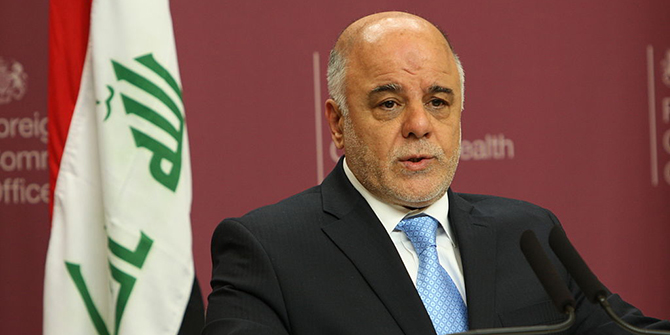By Robert Lowe
Turkey is clearly hugely influential in the outcome of the crisis in Syria. It has become perhaps the most significant single external actor and its influence is apparent across the Syrian political landscape: as Syria’s most important neighbour; as a confident state playing a greater role in the affairs of the Middle East; and in providing comparative models of government. And now that bilateral relations have collapsed, Turkey is the leading foreign power providing support and encouragement to the Syrian opposition.
For the Kurdish population in Syria, Turkey is even more significant because of the critical trans-state Kurdish factor. This means that developments within Turkey and between Turkey and Syria are hugely important to politics, identity and decision-making among Kurds in Syria.
The Turkey-Syria border is an artificial construction still under a century old. Trans-state ties have remained very strong and Kurdish families and tribes live on both sides. Large numbers of Kurds fled Turkey for Syria in the years following the First World War, their descendants still live in Syria, especially in the Jazira and other parts of the north. Kurds in Syria and Turkey both speak Kurmanji, one of the major subdivisions of Kurdish, and Kurds in Syria are affected by linguistic and cultural developments among the much larger Kurdish population in Turkey.
The Kurdish national movement in Syria has historically been weak and disorganised, while the much bigger and better organised movement in Turkey is more prominent and has proved attractive. Many, perhaps most, Kurds in Syria do not see the Kurdish cause in Turkey as distinct to their own, and actions which affect Kurds in Turkey are felt strongly by Kurds in Syria. This has been visible in Kurdish political and social mobilization in Syria in support of their brethren in Turkey.
Kurds in Syria did not have, until quite recently, a distinctly ‘Syrian Kurdish’ struggle. This has shifted somewhat in the last decade, notably with the serhildan (uprising) in 2004. The turbulence being experienced during the Arab Spring is not directly affecting Kurds in countries other than Syria. It may be that the current crisis in Syria further defines and develops a Syrian Kurdish identity, distinct to that in Turkey or in Iraq.
Despite some ‘pan-Kurdish’ sentiments expressed in propaganda, the Kurdish movement in Turkey is concentrated on its own issues. Discussions with Kurdish politicians in Turkey reveal a concern and sadness for the Kurdish plight in Syria, but an appreciation there is little they can do. This is common to Kurdish movements across the Middle East. The only Kurdish groups which actively support the interests of Kurds in more than one state are based among the diaspora.
The PKK’s relationship with the Kurdish movement in Syria is important. The PKK has recruited Kurds from Syria for decades and provided an outlet for their frustration. Syria’s support for the PKK in the 1980s and 1990s made this easy. The PKK claims to be the legitimate nationalist movement for all Kurds, but has held contradictory positions regarding the Kurdish struggle in Syria. The needs of Kurds in Syria are treated as secondary to those of the PKK in its fight against the Turkish state. Some noises are made in favour of Kurdish rights in Syria, but the real value of Kurds from Syria is as a human resource. Syrian Kurdish numbers in the PKK today are unknown but make a significant contribution. In the current crisis the PKK has apparently told Kurds in Syria not to rise against the regime. Under pressure in northern Kurdistan-Iraq, the PKK would find it useful to renew its alliance with Syria.
The Syrian Kurdish Partîya Yekîtî ya Dêmokrat (PYD) is the odd one out among the many Kurdish parties in Syria as it clearly identifies with the PKK. This causes a rift within the Kurdish nationalist movement and there is tension between PYD and the others parties. Most basically, this is seen at demonstrations where PYD supporters are criticised by other Kurds for waving PKK flags. More recently it has become darker with accusations of PYD/PKK attacks and kidnappings on other Kurdish activists in Syria.
One dramatic geopolitical result of the Syrian uprising has been the collapse in relations between Turkey and Syria. Turkey has strongly criticized the Syrian government, hosts thousands of Syrian refugees, and provides sanctuary to the Syrian Free Army. Turkey is actively assisting the Syrian opposition, including the Syrian National Council. But the council’s charter calls for ‘constitutional recognition of Kurdish national identity and a just democratic formula for the Kurdish question’; these are very awkward ambitions for the Turkish government.
Syria, feeling the pressure from its powerful neighbour, is short of retaliatory measures and so it is conceivable that it may once again flirt with the PKK. Turkish commentators are already blaming Syria in part for the recent spike in PKK attacks. Ahmet Davutoğlu, the Turkish Foreign Minister, recently warned Syria not to even consider playing the PKK card, saying everybody knows where that would lead – a clear reference to the events of the 1980s and 1990s and the Turkish threat of military action against Syria.
Turkey’s influence on Kurds in Syria during this crisis reveals a number of contradictory positions. Turkey supports democratic reform in Syria, but not for Kurds. The PKK supports reform for Kurds in Turkey, but is ambivalent about reforms for Kurds in Syria because of the value of Syrian state support and Kurdish fighters.
The PYD supports the PKK and reforms for Kurds in Syria. It has been at times the most outspoken of the Kurdish parties, yet its subservience to the PKK means that PKK goals in Turkey will be placed ahead of the struggle in Syria.
A couple of years ago, it seemed just possible that Turkish influence could be positive for Kurds in Syria. The AKP’s ‘democratic opening’ appeared to offer some hope of progress in Turkey, which could help influence reforms in Syria. The Turkish government’s abandoning of the opening, the stand-off with the BDP and the return to military tactics against the PKK is depressing.
The complexities of the Kurdish problem mean Turkey’s involvement is viewed by Kurds in Syria with great suspicion, even hostility. The PKK/PYD issue is also hurtful to Kurds in Syria. It causes splits within the national movement, the diversion towards Kurdish struggle in Turkey, even the possibility of renewed PKK activity from Syrian soil. A Syria-PKK alliance could lead to Turkish intervention in Kurdish areas of Syria.
Kurds in Syria are weak and not blessed with many friends. It is commonly said that Kurds have ‘No friends but the mountains’. Kurds in Syria don’t even have mountains. While some outsiders see Turkey’s role in Syria as positive, for the Kurds it has the potential to be very problematic. Kurds in Syria are likely to continue to be the losers.
This piece used material from a panel discussion which Robert participated in at the Centre for Kurdish Studies at Exeter University in November.
Robert Lowe is the Manager of LSE’s Middle East Centre and previously served as Manager and Research Fellow, Middle East and North Africa Programme, Chatham House. He held a Research Fellowship from The Leverhulme Trust from 2008 to 2010 and was an Honorary Fellow at the Institute of Arab and Islamic Studies, University of Exeter, from 2008 to 2010. His publications include co-editor with G. Stansfield, The Kurdish Policy Imperative (Chatham House, 2010) and ‘Kurdish Nationalism in Syria’, in M. Ahmed and M. Gunter (eds.), The Evolution of Kurdish Nationalism (Mazda, 2007).








1 Comments